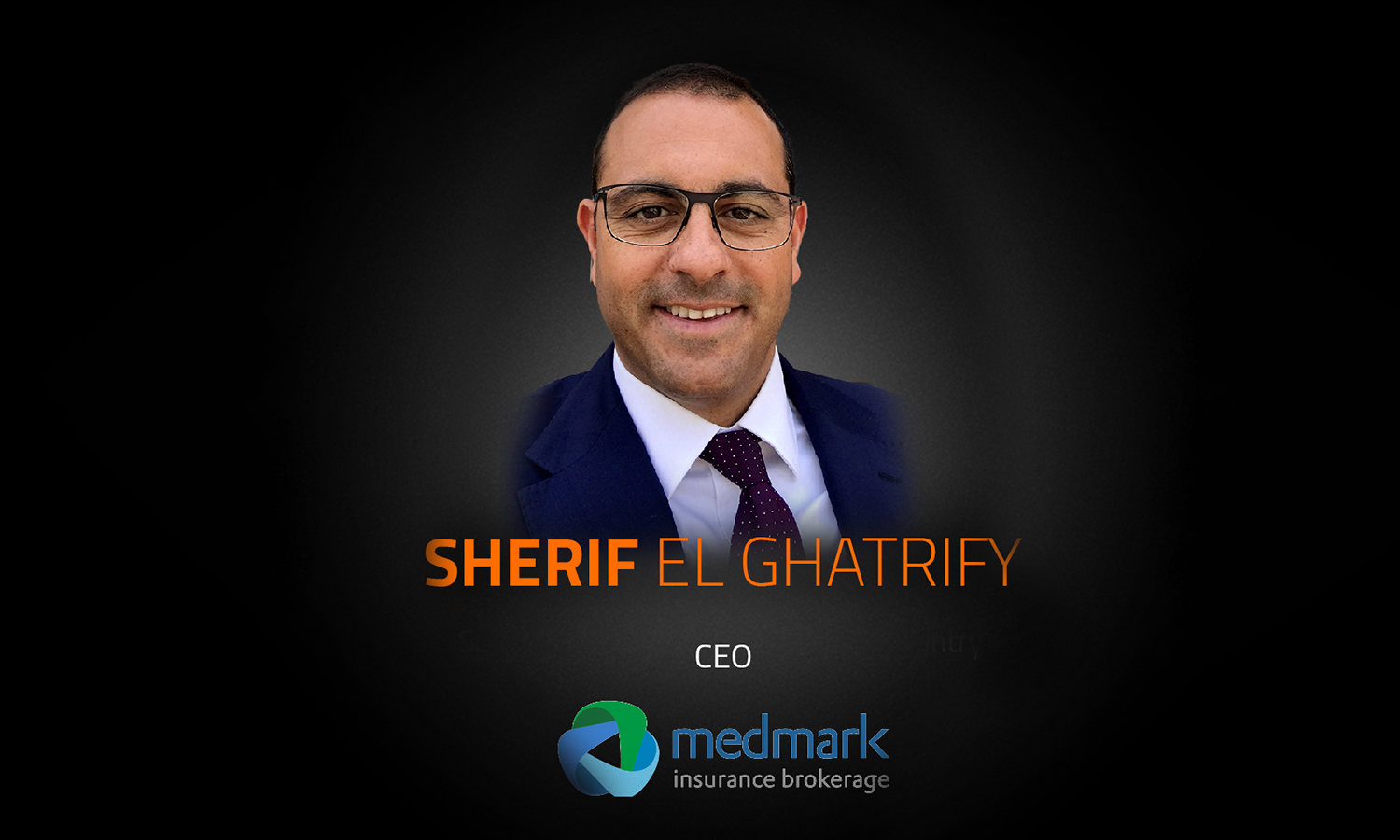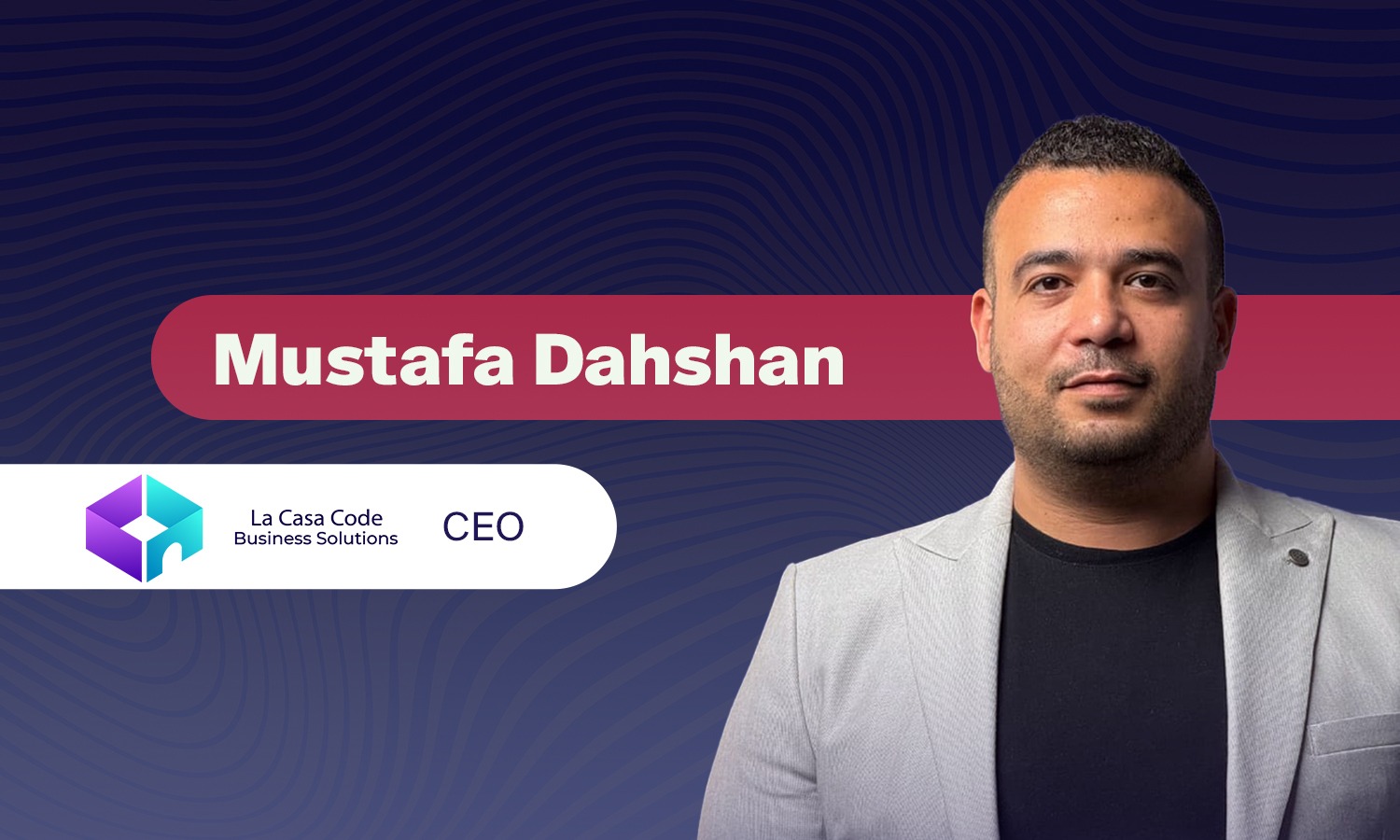Medmark: 30+ years of insurance solutions
Updated 7/18/2022 1:28:00 PM
Arab Finance: We talked with the CEO of Medmark Sherif ElGhatrifi, who shares with us what it is like to be in the medical insurance sector in a time of great demand vis-à-vis a great evolution. ElGhatrifi walks us through the 30+ years in the lifespan of the company as a representative office for International SOS, with its milestones and strides that did not stop at anything.
Can you tell us more about your professional career?
I have been in the insurance sector now for about 18 years. Prior to that, I was in the technology sector for about seven years, and before that I worked in restructuring; so my career really turned around, and that is my experience as large chunks.
How did the company evolve in its 30 years, especially in regard to digital transformation?
Predominantly, we started in the late 80s with medical evacuation services, assistance services and so forth. Following that, we began to see a demand towards evacuation to a Center of Excellence. So Medmark started to promote international private medical insurance, which still sits at the heart of what we do.
As the largest BUPA global distributor, Medmark has won numerous awards over the years on that front. And then in 2005, Medmark actually developed its own kind of local insurance, which was very similar to the international product that BUPA provided but on the local front. A few years later, we started to become a one-stop-shop for employee benefits, dealing with various insurance companies. And so that took us from about 2014 when we started to deal with multiple insurance providers while remaining focused on employee benefits such as medical, pension and life. That continued up until 2018 when we started to venture into all lines of insurances for individuals and companies across multiple industries, products, product lines, and so forth. And that is where we are today and that is the journey that we have been on the last 30 plus years.
During the pandemic, we had [already] undergone our digital journey. Basically, we have two companies: an insurance brokerage which sells insurance, and a servicing company, which is a third-party administrator that provides insurance servicing to insurers.
Unfortunately, we were not ready when COVID hit because we had to kind of change all of our underlying systems into more modern systems. Having said this, because of COVID of course we began to let people submit claims via emails or portals; we began to do a lot of servicing in terms of actually giving Medmarkers “our people” the ability to access our systems which were not well-placed at that time, so they are able to access it remotely using Citrix.
The pandemic for the business was great. It was a time where everybody needed support when it came to their healthcare. So for us it was really stress-testing our business, our people, our ability to deliver on our promise because at the end of the day, that is what insurance is. You buy insurance on the promise that if anything goes wrong, then we will be able to help you through whatever situation you are facing. And so all of a sudden, the whole world is facing a medical situation that has never been experienced before at that magnitude. So there are a lot of challenges for us as a business and for us to be able to support our clients in the best possible way.
Can you shed light on the company’s performance in the past year in regard to the sector?
When you look at the insurance market as a whole, over the past five years, we are looking at a 21% CAGR growth in premiums versus claims which are growing at about 17% on average. So the potential is huge when you look at insurance and growth in the sector.
We have managed to also grow our work significantly. We serve just under 100,000 clients to date. From a premium perspective, we are talking about EGP 1.3 billion in total premiums which would put us, if we were an insurance company, with some of the top insurers.
Who is your target audience and did it expand over the years? Are there specific sectors that you target?
When you look at when Medmark started, it was only selling international private medical insurance, so that would be sold to very specific organizations or very specific individuals. But when you look at the market, specifically the domestic one, we have moved a little bit further down. Same goes with the retail. Now we tend to do look at customer profiles, whether organizations or individuals, and try to really get a very strong understanding of what their requirements are. So if you are a transportation company, you have very different requirements than if you are in the education sector, for example. And so we have really dug deep into the understanding of the various sectors and what they need and then provide solutions that will match these needs.
But ultimately, we are sector agnostic. So we are not specialized in certain sectors. However, we have got specialty products that would fulfill certain sectors. So, for example, if you look at the energy sector, we have a bunch of products that would help. When we look at for example, banking, or certain IT companies, we have other products such cyber insurance for example. So that is how we are developing our business.
In your point of view, how is Egypt ensuring an equitable, fair healthcare system?
I think this is one of the hardest journeys that countries tend to embark on and so having that universal health care act is definitely a great vision. I think that it comes with a lot of challenges, however. I think so far there have been more challenges and obstacles than Egyptians were promised there will be, but I think that it is definitely the right path to take. I think that it is also going to be an ever-evolving act. So I think with the realisation of some of these obstacles, what tends to happen is that you acknowledge that you need solutions. I think that we are going to see a lot more cooperation from the government and the private sector to really develop and deliver on the universal healthcare act. One example was, all of a sudden there was a huge backlog in claims from the governorates that were piloted. And so basically, the universal healthcare act's authority decided we need third party administrators (TPAs) or administrative companies to come and assist us with these claims. And so I think we're going to continue to see more and more collaboration between the public and private sector as these obstacles unfold.
Would you share with us your thoughts on the latest development of Egypt’s insurance policy?
The new law is still understudy and currently in the parliament but I think that definitely it is without a doubt another step in the right direction because the regulator's trying to grow the market. It is also good to regulate the market in a more efficient manner to find out which areas of the market are not regulated and bring them in.
Why would someone come to Medmark versus others?
You would come to Medmark for various reasons. First, for our expertise as we are a company that has a lot of heritage and a lot of experience. We have been around for 30 something years and you just can't beat that. Second, is because of our technical know-how. That is evident in the way we built our businesses. For instance, we have actually got product specialists that are very focused on really understanding specific product lengths. So it is really having that vertical expertise. And the third reason is the local expertise.
As the largest Bupa Global distributor, how is this in line with the company’s goals?
For us, in terms of our vision we want to make a difference in people's lives. Ultimately, we want people to lead better lives because they are with Medmark and we will continuously try and introduce new propositions in new ways of doing things to our customers to allow for that and I think that Bupa has given us the ability to really grow; really understand the importance of customer-centricity and all of these things are what are fueling our growth for tomorrow. Please also bear in mind that when it comes to medical insurance we are the largest distributor for some of the major insurers not just Bupa.





